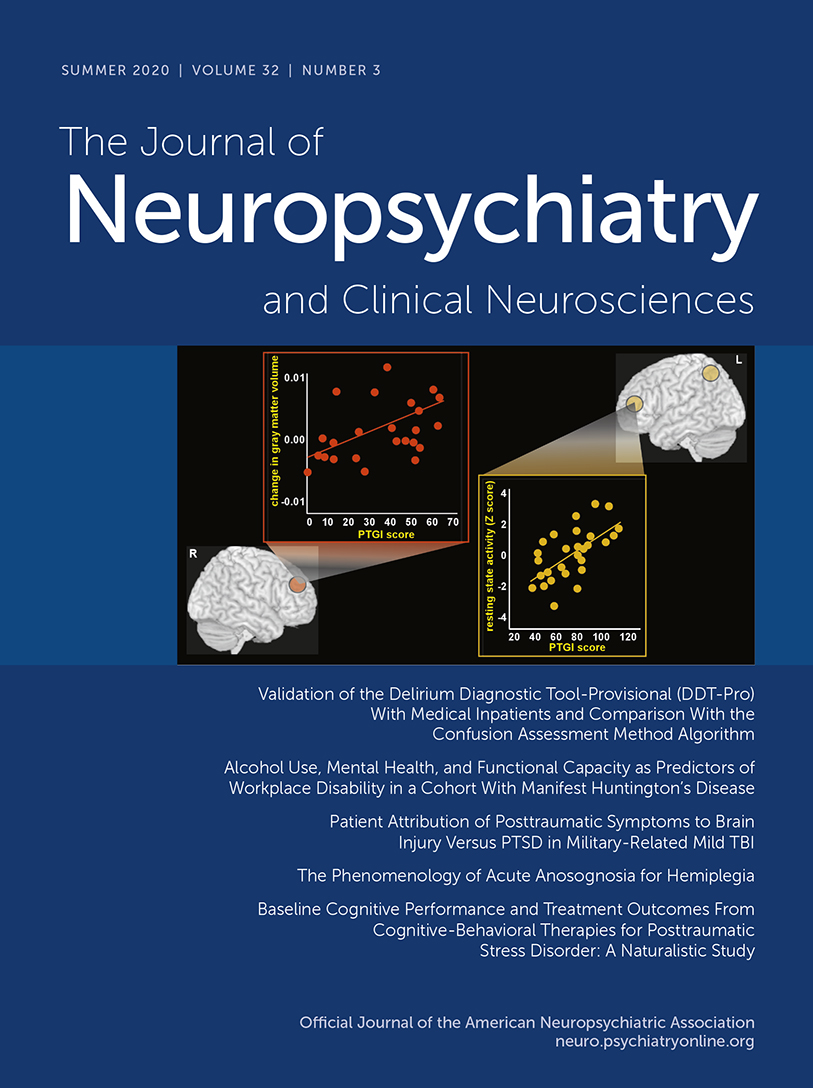Examination of Potential Differences in Reporting of Sensitive Psychosocial Measures via Diagnostic Evaluation Using Computer Video Telehealth
Abstract
Objective:
The authors compared baseline characteristics and reporting of psychosocial measures among veterans with seizures who were evaluated in-clinic or remotely via computer video telehealth (CVT). It was hypothesized that the CVT group would report less trauma history, drug use, and comorbid symptoms compared with veterans seen in-clinic.
Methods:
A cross-sectional design was used to compare 72 veterans diagnosed with psychogenic nonepileptic seizures (PNES) or concurrent mixed epilepsy and PNES who were consecutively evaluated by a single clinician at the Providence Veterans Affairs Medical Center (PVAMC) Neuropsychiatric Clinic. In-clinic evaluations of veterans were performed at the PVAMC Neuropsychiatric Clinic (N=16), and remote evaluations of veterans referred to the VA National TeleMental Health Center were performed via CVT (N=56). All 72 patients were given comprehensive neuropsychiatric evaluations by direct interview, medical examination, and medical record review. Veterans’ reporting of trauma and abuse history, drug use, and psychiatric comorbidities was assessed, along with neurologic and psychiatric variables.
Results:
No significant differences were found between veterans evaluated in-clinic or remotely with regard to baseline characteristics and reporting of potentially sensitive information, including trauma and abuse history, substance use, and comorbid symptoms.
Conclusions:
Veterans with PNES evaluated via telehealth did not appear to withhold sensitive or personal information compared with those evaluated in-clinic, suggesting that CVT may be a comparable alternative for conducting evaluations. Baseline evaluations are used to determine treatment suitability, and telehealth allows clinicians to gain access to important information that may improve or inform care.



